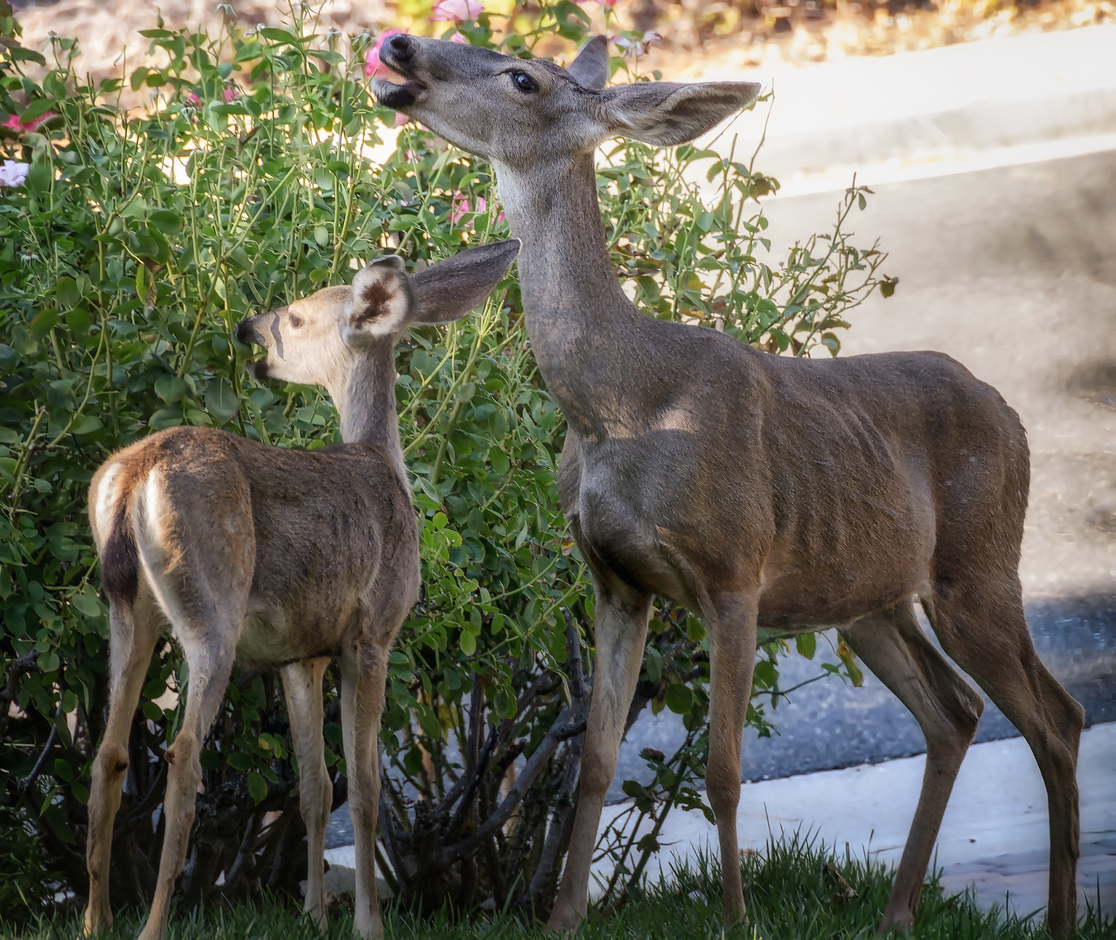We may earn revenue from the products available on this page and participate in affiliate programs. Learn More ›
The great outdoors is sometimes decidedly less than great—when insects swarm, for example, or when your carefully tended gardens are torn up by buffet-seeking deer or the neighbor’s cat. Americans, in fact, spend more than $26 billion a year on pest control measures. While applying chemical treatments is one way to get rid of pests, there’s a more natural option to consider: Strategic plantings of certain herbs and flowers won’t just deter undesirable critters, they’ll also beautify your yard and garden—and just might provide a little seasoning for dinner.
1. Lavender
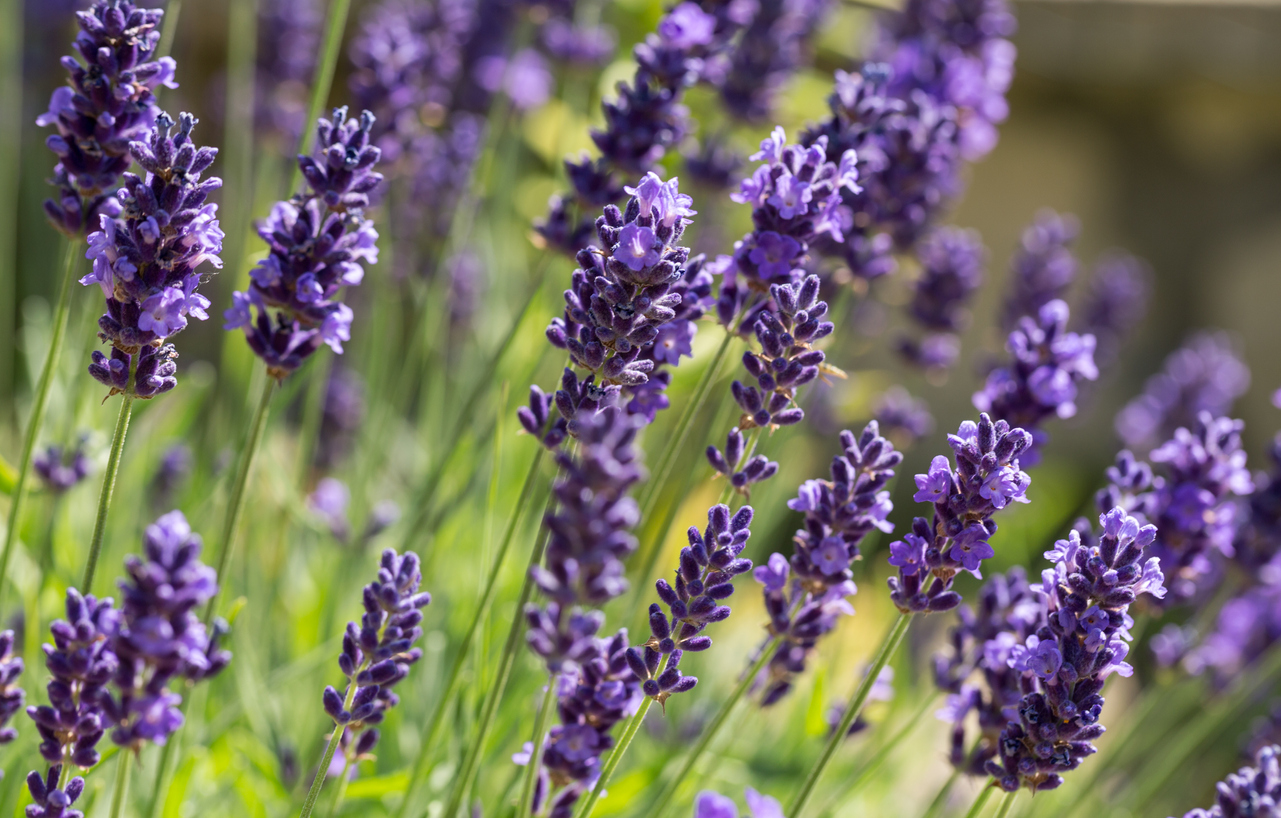
A soothing favorite for centuries, lavender repels fleas, moths, mosquitoes, and many other insects. While oil extracted from the flowers makes an effective mosquito repellent, the plant itself can also ward off unwelcome insects. As you’re arranging lavender plants around your outdoor seating areas, don’t forget to position one close to a doorway: Lavender repels flies and may keep house flies from taking up residence at your place.
RELATED: How to Get Rid of Flies in the House
2. Chrysanthemums
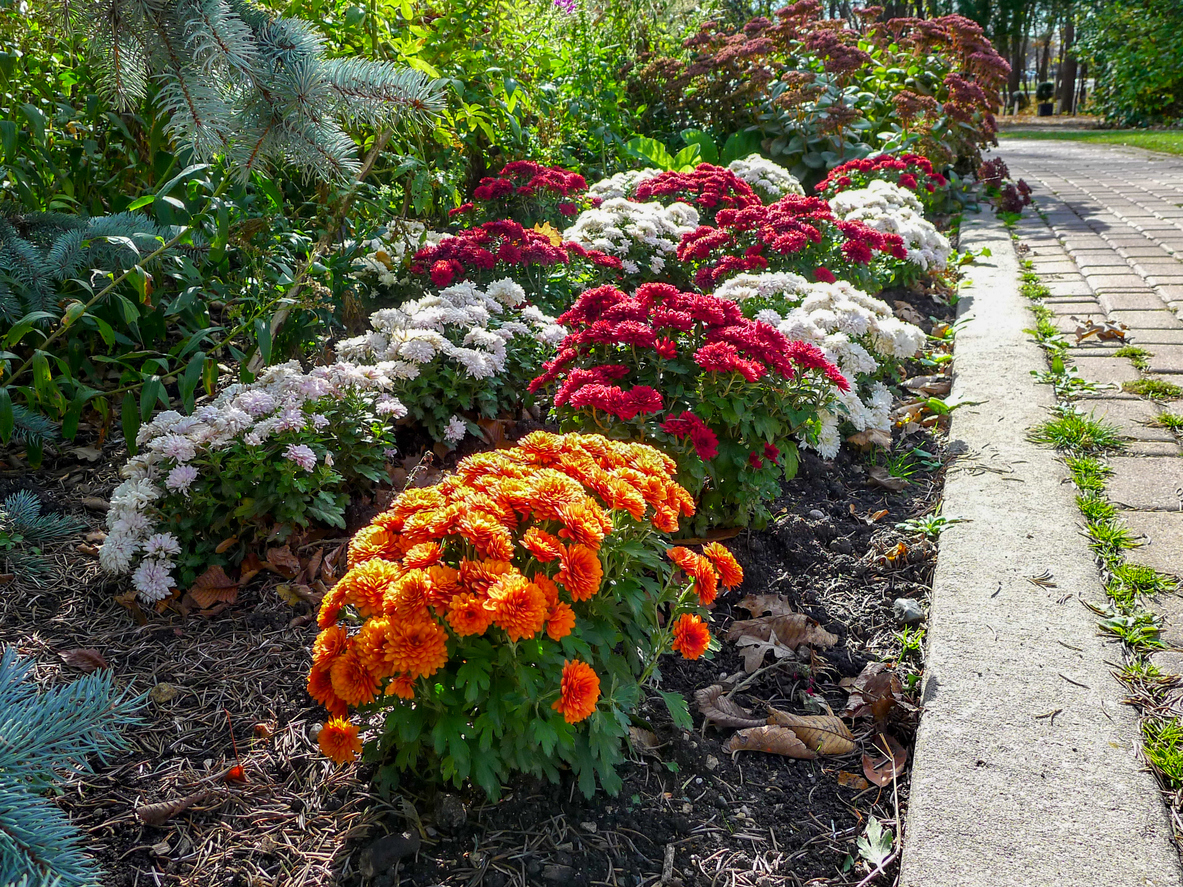
Bright chrysanthemum blooms contain pyrethrum, which is frequently used in natural insect repellents and dog shampoo. The chemical can kill and deter ants, ticks, fleas, spider mites, roaches, Japanese beetles, and even bed bugs. This characteristic makes mums popular insect-repelling companion plants in vegetable gardens. For the same reason, pots brimming with colorful mums are also great additions to outdoor seating areas.
3. Basil
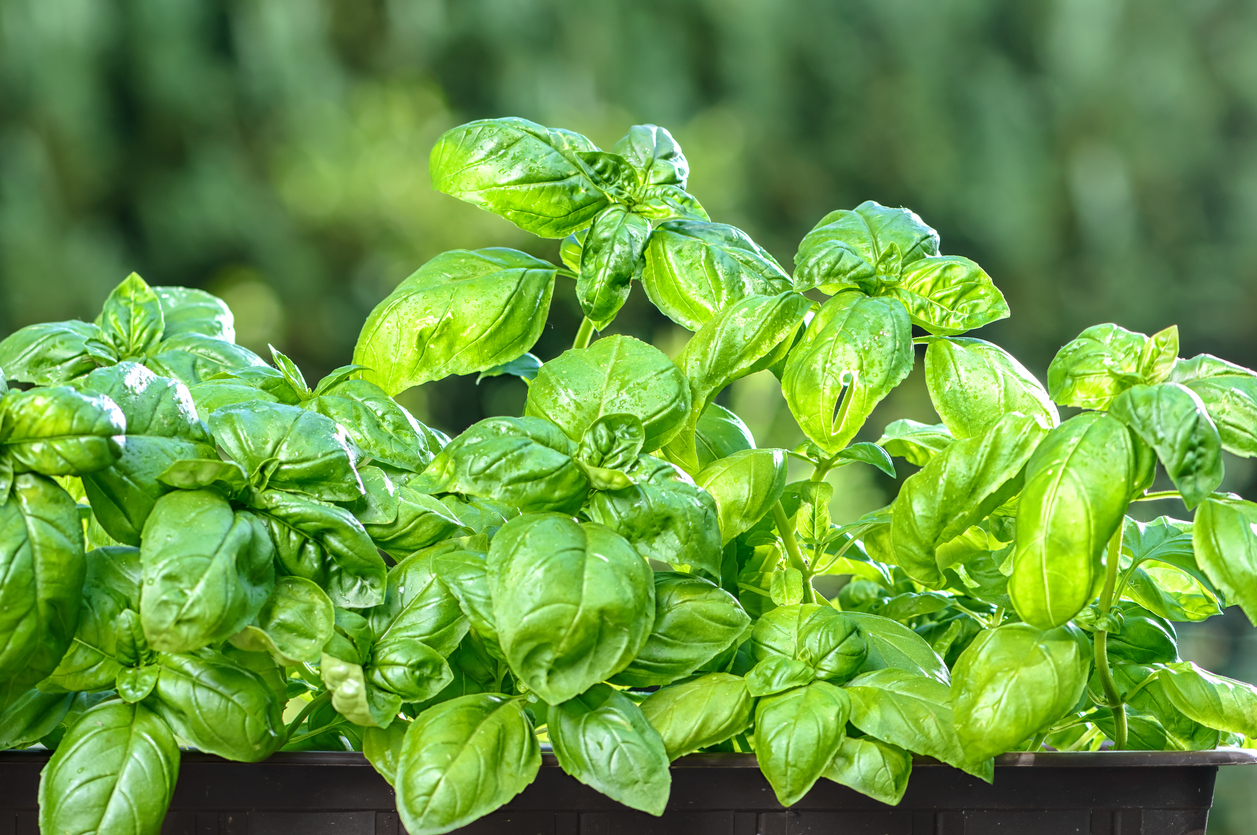
Delicious to eat, basil also repels mosquitoes and houseflies. Place containers of basil around outdoor seating areas, or use it to make a DIY natural insect repellent: Pour 4 ounces of boiling water into a bowl along with a generous handful of basil leaves and stems. Let the mixture steep for several hours, strain it, and then add 4 ounces of vodka. Pour the mix into a spray bottle to spritz it on whenever you’re outdoors.
RELATED: 10 Plants That Grow Better with Companions
4. Nasturtiums
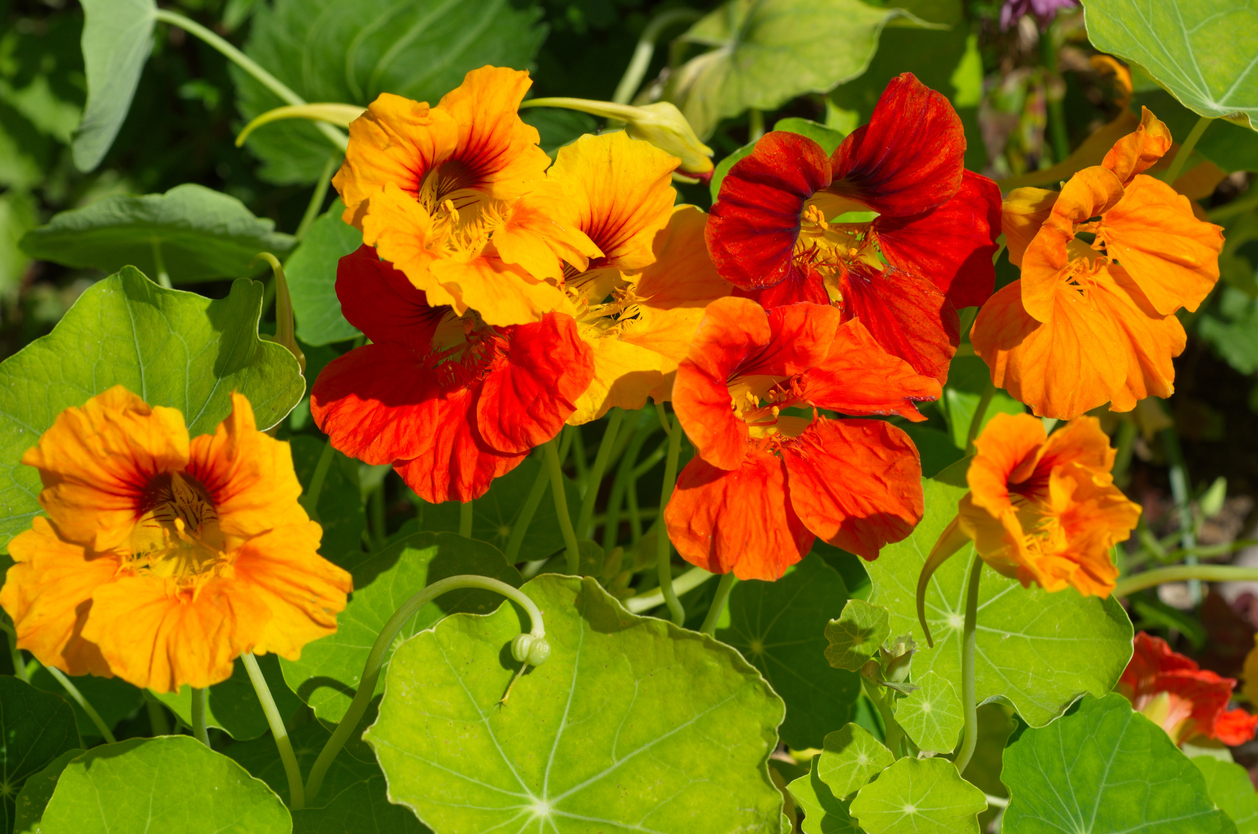
Nasturtiums have a reputation as a very desirable companion plant. The flowers release an airborne chemical that is distasteful to a variety of insects, including aphids and whiteflies, which is why so many gardeners plant it alongside their veggies. Whether you plant nasturtiums in the vegetable patch, in containers around the patio, or along flower beds, this easy-to-grow annual will protect itself, other plants, and you from unwanted visitors.
5. Lemongrass
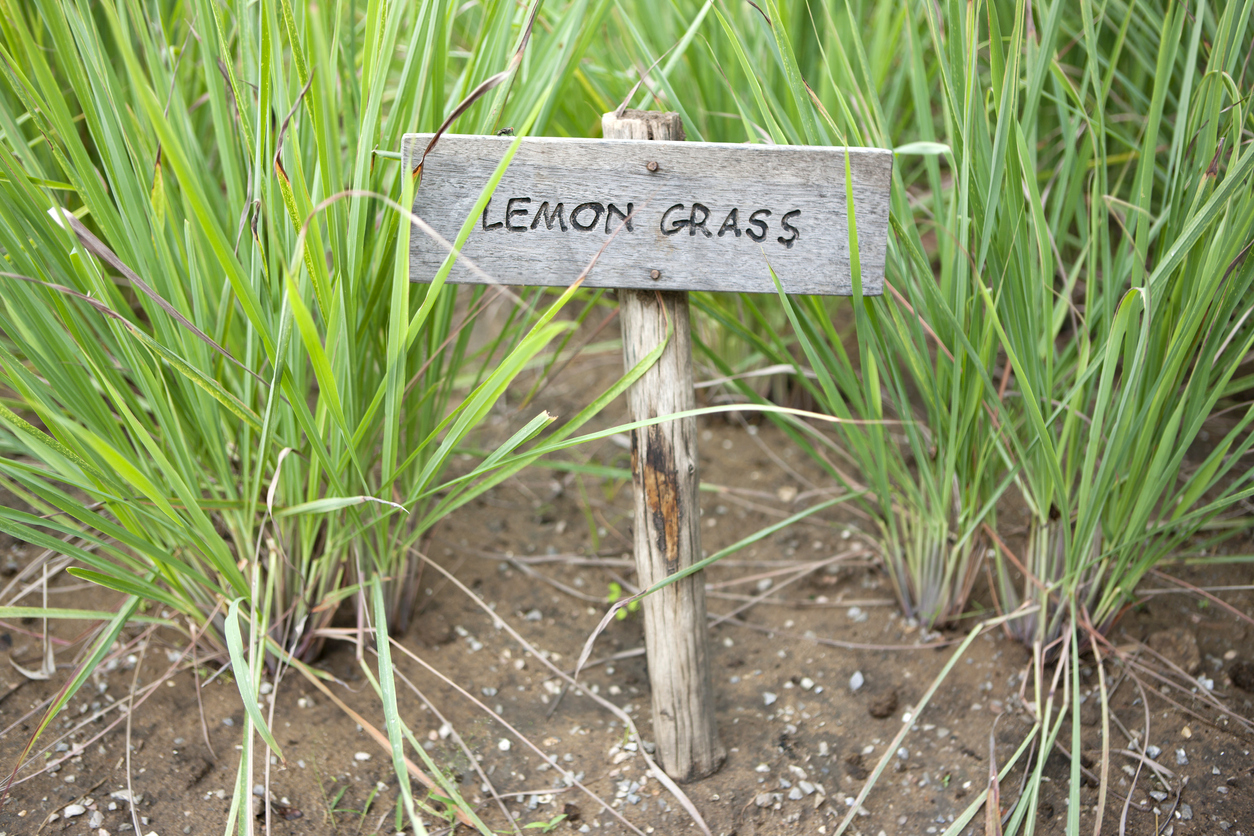
Citronella oil, which is commonly used in insect-repelling outdoor candles, comes from the lemongrass plant, so it’s not surprising that the ornamental grass is chief among plants that repel mosquitoes. For a one-two punch against pests, plant lemongrass around the patio and use citronella candles when the bugs are especially bad. Grown as an annual, this strongly scented grass reaches up to 4 feet tall during the season, and fares pretty well in containers.
RELATED: Plants That Repel Mosquitoes: 18 Picks for a Bug-Free Backyard
6. Marigolds

Mosquitoes, nematodes, and aphids hate the smell of marigolds, but these cheerful flowers are a favorite with gardeners. Grown as an annual in most USDA hardiness zones, marigolds prefer full sun and well-drained soil. (Beware: If you plant them in the shade, marigolds are prone to powdery mildew.) Place them strategically in your vegetable garden or in pots around the patio, and you’ll be glad to have this plant that repels mosquitoes.
7. Lemon Thyme
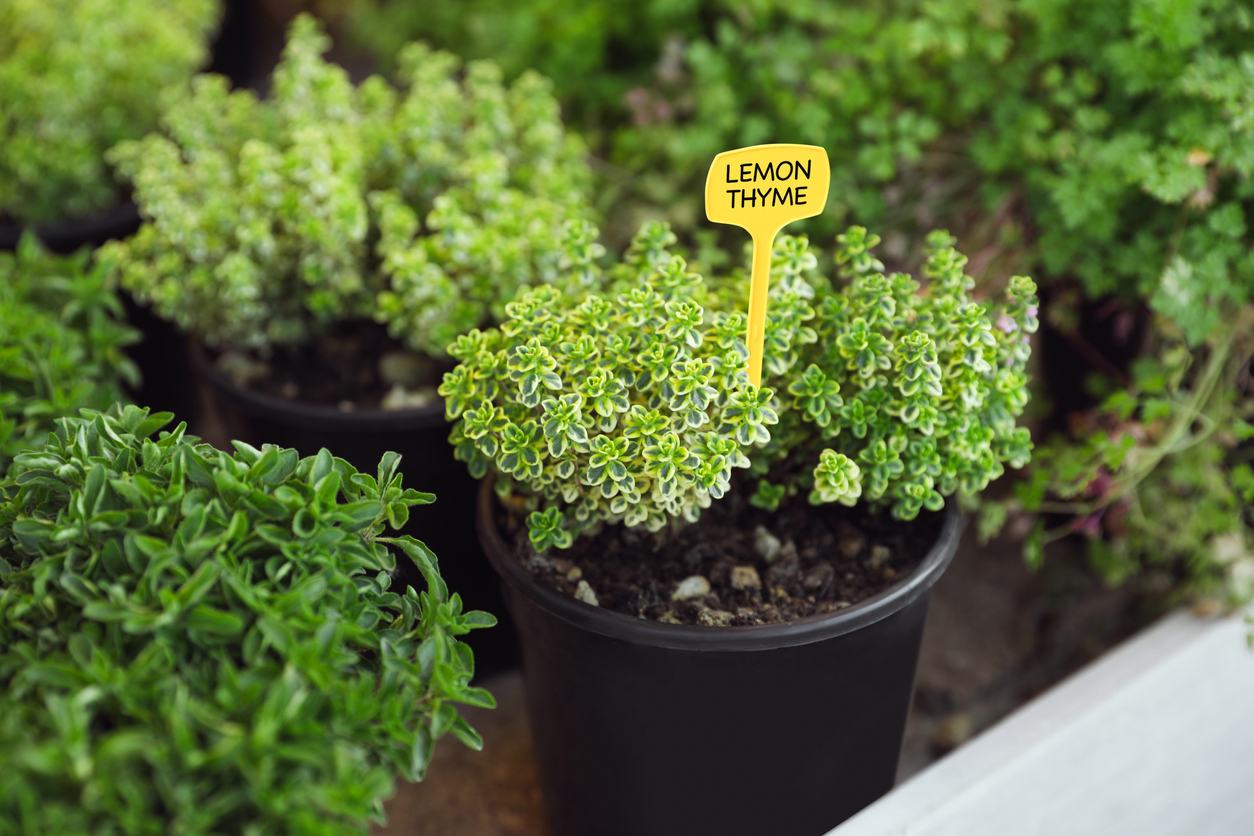
Hardy lemon thyme is an herb that will repel mosquitoes when you bruise its leaves to release essential oils, but that takes no time at all. Simply station a few planters with lemon thyme around the patio and, when you’re sitting outside, offend hovering mosquitoes by crushing a few leaves on the plant to release the scent.
RELATED: 7 Important Things to Know About Growing Herbs Outdoors
8. Mint
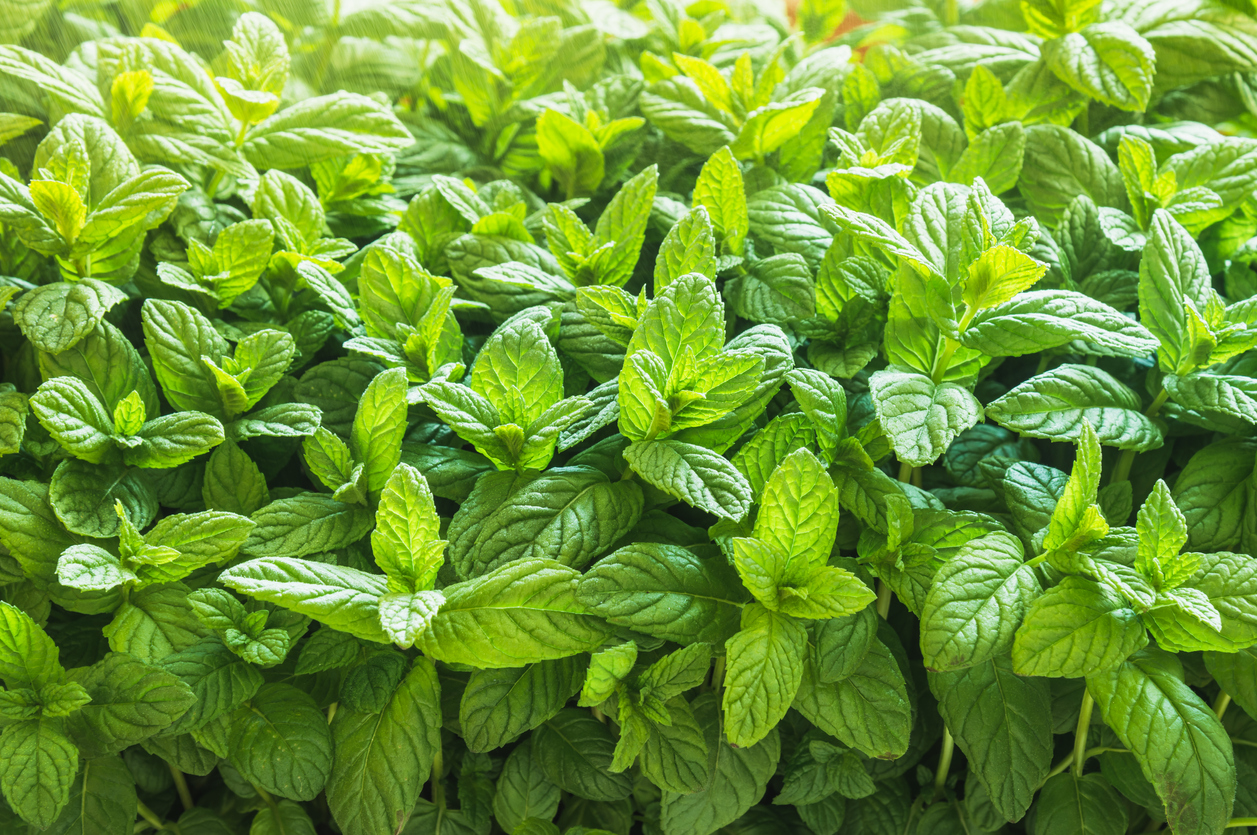
The aromatic leaves, stems, and flowers of a mint plant repel mosquitoes and ants, but you’ll want to keep this herb confined to a pot because it spreads aggressively and can overtake your small garden. Instead, place planters around the patio to create your own minty fresh, pest-free zone. Another way to use mint to turn pests away is to make a natural insect repellent: Mix mint oil with apple cider vinegar and witch hazel. A light spritz while you’re outdoors will shoo irritating insects away.
RELATED: Pests, Be Gone! 11 Natural Ways to Make Your Home Critter-Free
9. Petunias
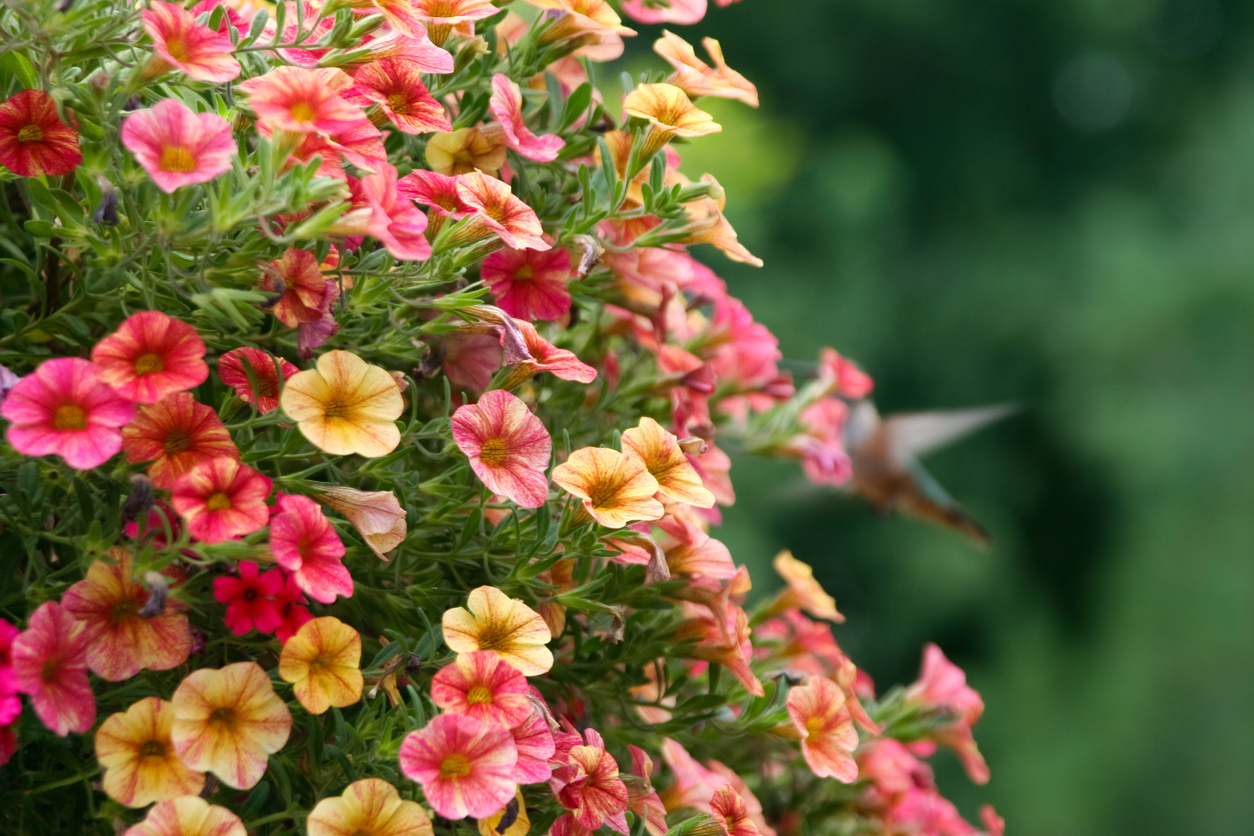
Not only are they pretty, with a sweet fragrance, but petunias also naturally catch a variety of insects, including Japanese beetles, aphids, leafhoppers, and many more. Yes, we said “catch”: The cheerful plants have sticky hairs that actually trap insects, and the roots ultimately absorb the nutrients from the bodies of their prey. Although petunias prefer full sun, a bowl of these profuse bloomers will do well enough on a shady patio table.
10. Rosemary
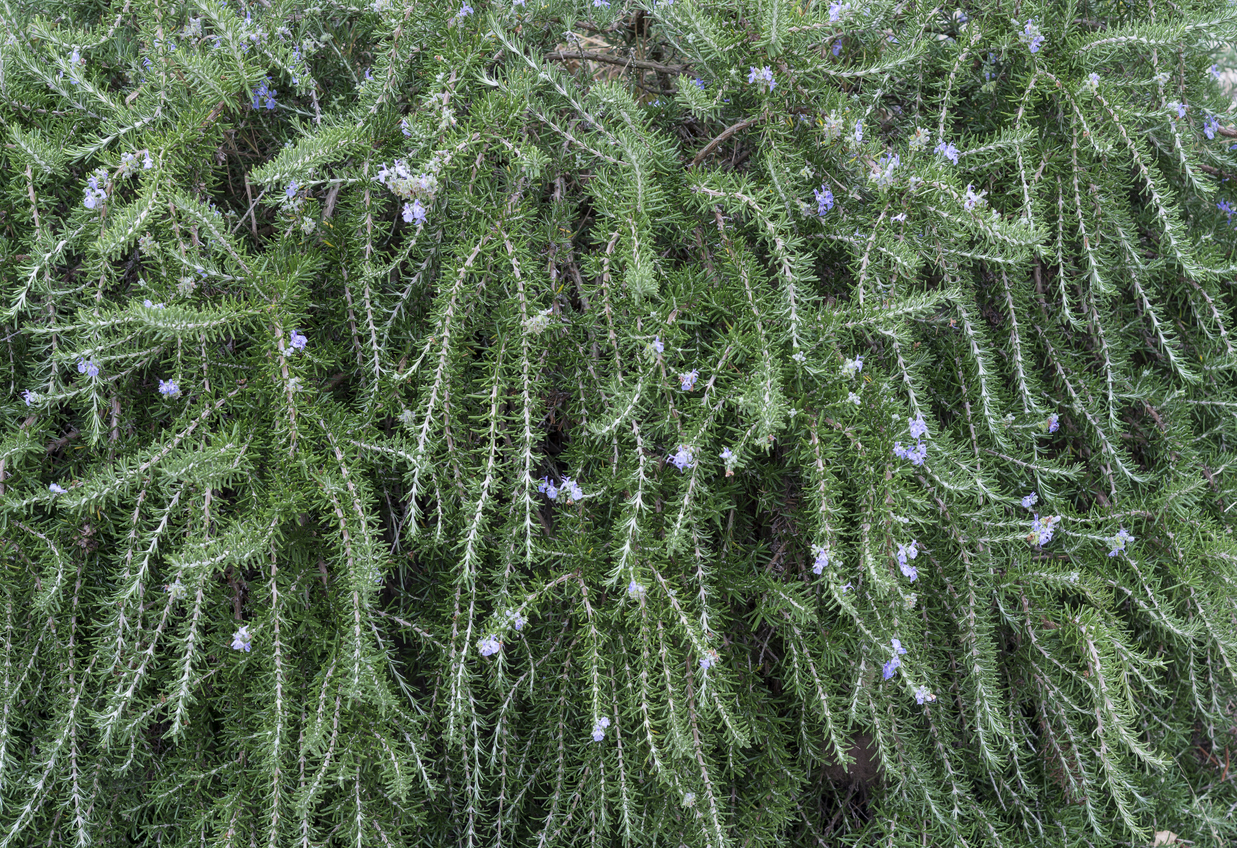
This pointy culinary herb repels mosquitoes and other pesky insects whether the leaves are crushed or intact, which is why it makes sense to strategically place a few containers of rosemary around your garden and patio. To make a natural rosemary insect repellent, boil a handful of rosemary cuttings in a quart of water for 30 minutes. Strain the liquid, pour it into a spray bottle, and store in the refrigerator until you’re ready to mist it around.
RELATED: How To: Propagate Rosemary
11. Rue
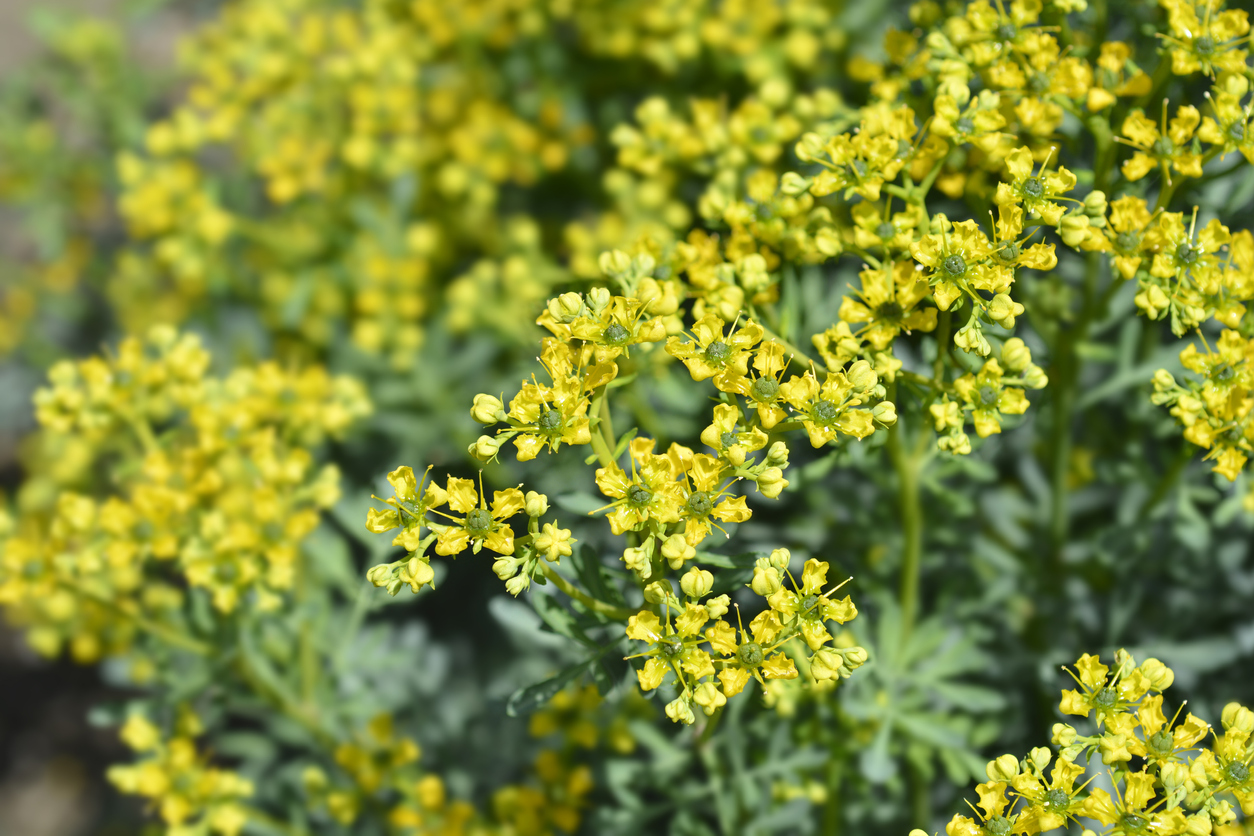
This ornamental, perennial herb is a good addition to your garden if you’re getting some unwanted feline visitors, because cats detest its musty smell. In summer, rue’s lacy blue-green leaves are ornamented by clusters of small yellow flowers. Rue prefers full sun and well-draining soil, but requires little ongoing care. Consumed in large quantities by humans or animals, the plant can be toxic, but its odor is typically enough to deter animals from ingesting it.
12. Geranium
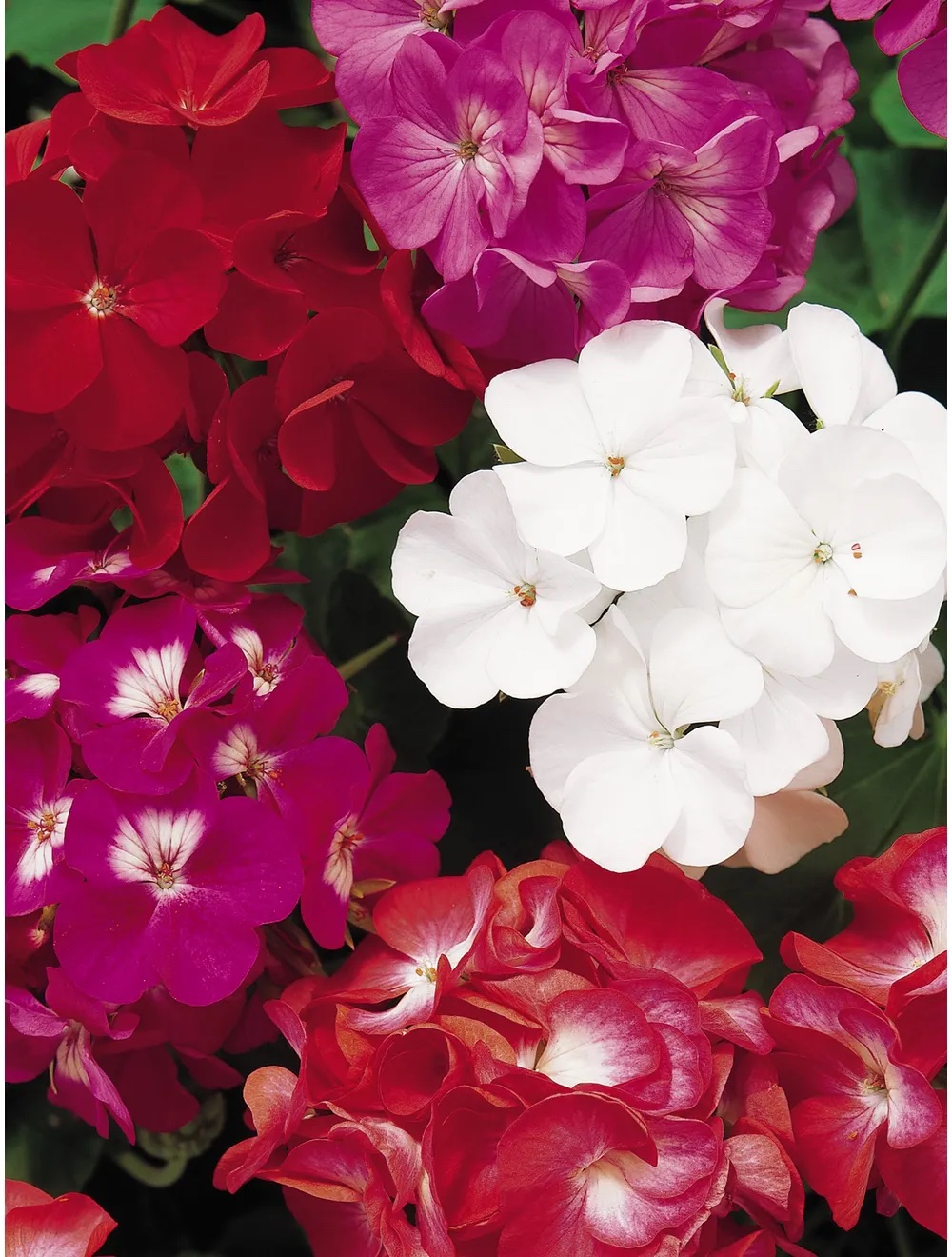
If you’re looking for a way to repel wasps, consider planting colorful geranium, which is grown as an annual in most of the United States. Wasps are put off by the plants’ smell, which is why it makes sense to position geraniums in areas where friends and family congregate. Geraniums are particularly attractive in hanging baskets, and should be watered when the soil starts to dry out. Fertilize the plants every couple of weeks during the growing season.
13. Oregano

If it’s Bambi and friends you’re looking to deter, consider oregano, which repels deer. While we humans may love the smell of oregano, perhaps dreaming of a delicious pasta sauce featuring heaps of the Mediterranean herb, deer are less enamored of its strong odor. Oregano isn’t fussy and will grow in many soil types, as long as the dirt drains well. It makes a wonderful ground cover, so plant it with abandon and you’ll keep the deer away.
RELATED: 17 Deer-Resistant Plants, Flowers, and Shrubs
14. Society Garlic
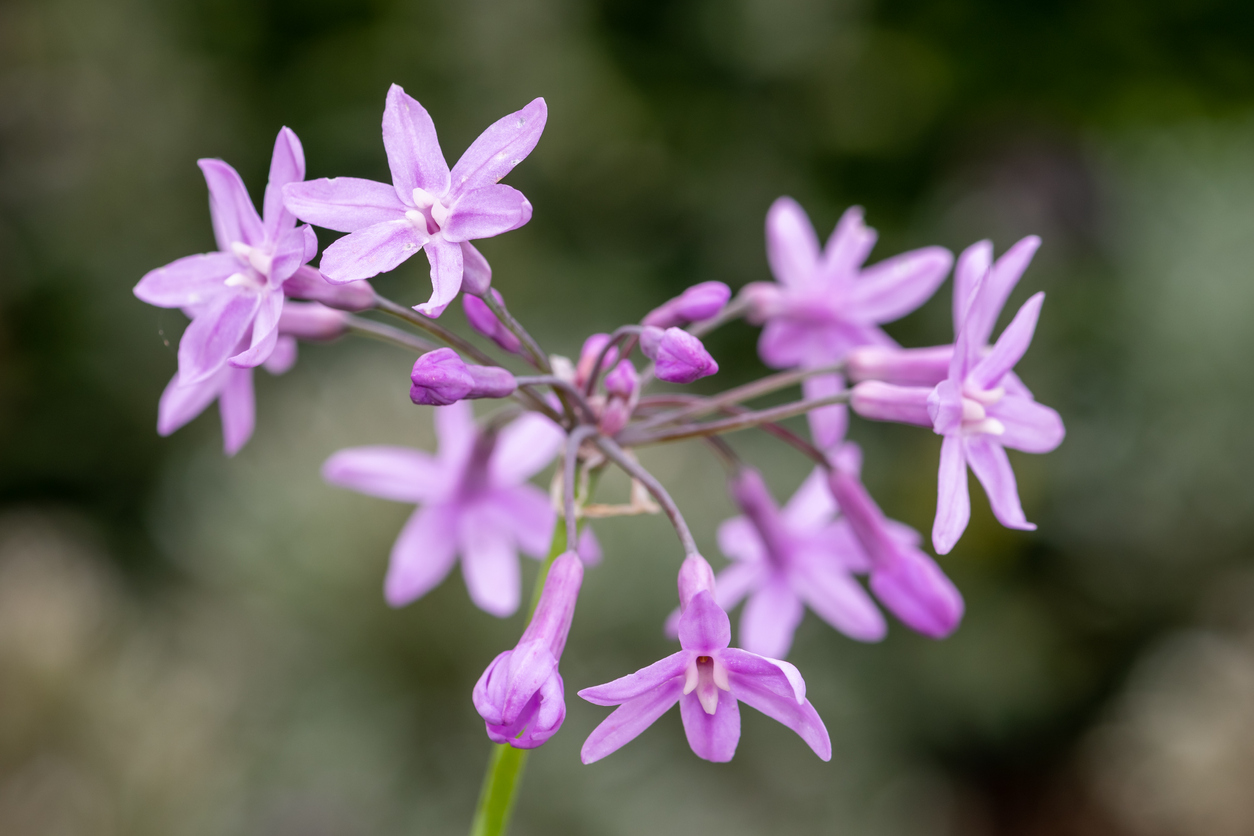
Among the plants that repel snakes, society garlic is quite effective. While the plant is not actually a member of the garlic family, its garlic-like smell is a no-go for slithery reptiles. The clumping perennial features grass-like leaves and tall stalks that bear clumps of delicate purple flowers. A sun-lover, society garlic prefers somewhat fertile soil but will adapt to pretty much any soil, as long as it drains well.
RELATED: 11 Decoy Plants Guaranteed to Trick Garden Pests
15. Dill

If you’re looking for plants that will drive away insects that can damage your garden, consider dill, whose scent is repugnant to a variety of creepy-crawlies. Aphids, spider mites, and cabbage moths are particularly averse to the tall, wispy biennial herb. Dill attracts some beneficial insects, such as black swallowtail butterflies. Plant fast-growing dill in a sunny spot and give it a moderate amount of water.
